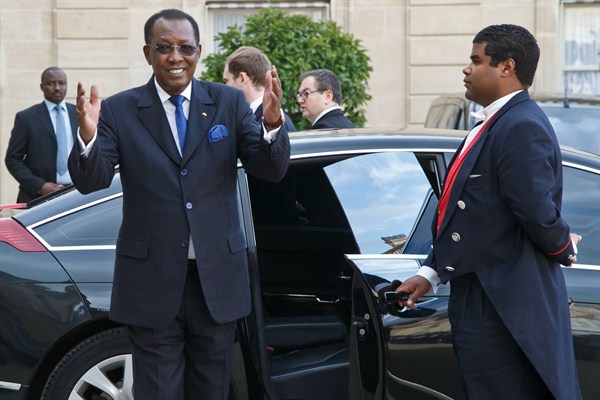With just days to go before presidential elections in Chad on Sunday, civil society groups are continuing to call for people to take to the streets despite a ban on demonstrations. On April 5, a small number of protesters, including members of two citizen groups—Ca Suffit, or That’s Enough, and Trop C’est trop, Enough is Enough—succeeded in holding a brief demonstration on Rue Felix Eboue in the center of Chad’s capital, N’Djamena, despite a strong police presence. The protesters were calling for an end to the country’s political stagnation ahead of the election, as well as for the release of five leading activists who have been arrested in the past two weeks, including prominent dissident Albissaty Saleh Allazam. More attempts to take to the street can be expected ahead of the vote.
This week’s actions follow a remarkable social movement that broke out in February in response to the alleged rape of a teenage girl by a gang that included relatives of several high-profile figures, among them the son of the country’s foreign minister. Chad’s political opposition and strong labor union movement skillfully capitalized on those protests, which proved to be a conduit for visceral anger about the privileges enjoyed by those close to President Idriss Deby and his inner circle. Since Deby came to power in 1990, his family members and Bideyat Zaghawa clansmen have been able to dominate key positions in business and government. The recent demonstrations continued for nearly two weeks, even with a heavy security force presence and the death of at least one protester.
This is not the lead-up to the election that Deby wanted. He has spent the past five years trying to cultivate Chad’s image as a bastion of stability in a troubled West and Central African neighborhood. Chad’s military interventions in Mali in 2013 in support of the French counterterrorist mission known as Operation Serval and later against the Islamist group Boko Haram in northeastern Nigeria and the broader Lake Chad area have demonstrated the prowess of Chad’s army and Deby’s ability to act against security threats as other regional players stalled.

